|
“Let us remember that we are in the holy presence of God.” With these words, I and students of Lasallian schools around the world would pause before class to contemplate and center ourselves on this truth. This call to prayer tended to have the effect of stilling the room, if only for a few moments of silence, but I especially appreciated turning my focus to God before carrying on with my day. Even after I graduated from high school, I was able to cherish this simple ritual even more as I would go through my busy routine at The Catholic University of America. I found that even the simplest acknowledgement of God— this small act of love— would help me endure the challenges of the day. The Church celebrates the feast day of St. John Baptist de La Salle on April 7, though his institutions continue to celebrate on May 15, the date of his original feast day until 1969. Students of De La Salle’s schools may be very familiar with his biography, whose life’s works are the very foundation of their education. De La Salle was born to a wealthy family in Reims, France in 1651. At that time, most children had little hope for social or economic advancement. Seeing how the educators in his hometown were struggling, lacking leadership, purpose, and training, De La Salle determined to put his own talents and education at the service of the children “often left to themselves and badly brought up.” Having donated his inheritance to the poor of the famine-afflicted province of Champagne, De La Salle began a new religious institute, a community of consecrated laymen to run free schools “together and by association,” the first with no priests among its members: the Institute of the Brothers of the Christian Schools, known in the United States as the Christian Brothers. His community would grow to succeed in creating a network of quality schools throughout France that boasted revolutionary educational practices such as instructing in the vernacular, grouping students according to ability and achievement, integrating religious and secular subjects, having well-prepared teachers with a sense of vocation and mission, and involving parents. Today, the Christian Brothers are assisted by more than 73,000 lay colleagues, teaching over 900,000 students in 80 countries. As a “Brother’s boy,” each of my peers and I would learn to take up our studies as well as our friendships with gusto and dedication, being made ever aware of the gifts God had given each of us. The life of De La Salle was especially studied as part of the freshmen curriculum, but each student was expected to emulate his example of charity and spirituality through and beyond graduation. St. John Baptist de La Salle showed others how to teach and care for young people, how to meet failure and frailty with compassion, and how to affirm, strengthen, and heal. His advice to his community of educators still rings true for the countless students taught in his name: “to do all [your] actions for the Love of [God] … with all the affection of your heart” and to “hold prayer in high esteem as the foundation of all the virtues, and the source of all grace needed to sanctify [yourselves].” The Brothers I was blessed to have as mentors surely strove to follow this example in all aspects of their lives; they’d encourage us to simply be aware of and open to God’s will. Returning to prayer, then, was essential to the ministry of St. John Baptist de La Salle. I would and still marvel over how truly beautiful is the sight of seeing students pray before class, meals, games, and trips —not just out of need or a particular want, but out of love, faithful devotion, praise, and thanksgiving. Especially in times of global, local, or personal strife, the small chapel in the corner of my high school would always contain at least one of my peers before the Blessed Sacrament. Of the many gifts our beloved founder gave to the modern education system, I especially cherish the routine of prayer instilled in my life and that of countless others. Not only would we remember our being in God’s holy presence, but also that God Himself faithfully, lovingly, eternally, and supportively lives in each of us. “Saint John Baptist de La Salle, pray for us!” “Live, Jesus, in our hearts! Forever!” For more resources on Prayer and Catechesis, click here.
0 Comments
This Sunday, the Sunday following Easter, the Church recognizes Divine Mercy Sunday, a day that carries an even greater emphasis in this Year of Mercy as announced by Pope Francis. Divine Mercy Sunday is a day that carries a special significance to my family. In a few weeks, my family will mark the tenth anniversary of the passing of my grandfather, known best to his grandchildren as “Pop-pop.” He was a man of great generosity both to his family and to each of his patients, who he spent his career serving as a cardiologist. He was also a man of great faith, who in his passing left his family with the greatest gift, one of faith in God’s infinite mercy. In the months before his death, as he gradually grew weaker and his cancer spread, he found a great peace in praying the Divine Mercy Chaplet. He was especially fond of praying the chaplet in song and even when he was too weak to say it himself, family and friends would pray it with him. It was widely known that at 3pm each day the television would be tuned to EWTN so he could recite the chaplet. Providentially, a local Catholic film producer was filming a new production of the Divine Mercy Chaplet in song, entitled Generations Unite in Prayer and they were looking to film someone elderly with a devotion to this prayer. Despite concerns over my grandfather’s declining health, he was insistent on being a part of this project and doing whatever he could to help spread the message of Divine Mercy. Also known for his sense of humor, on the day of filming,, Pop-pop remarked, “It’s a good thing Jesus is the star of this show, because I don’t look so good” as the crew captured scenes of our family praying the chaplet at his bedside. Following the filming, my grandfather felt a renewed sense of determination: he wanted to live to see one more Divine Mercy Sunday. Although this was still many weeks away, by the grace of God he lived to see that day. In fact, on Divine Mercy Sunday he insisted on getting out of bed and kneeling before the image of Divine Mercy that hung by his bedside to offer a prayer of thanksgiving with the intercession of St. Faustina. He passed away two days later. I was first introduced to the Chaplet of Divine Mercy when my grandfather was ill and still today I take great comfort in its words, particularly the words to the closing prayer: Eternal God, in whom Mercy is endless and the treasury of compassion inexhaustible, look kindly upon us and increase your Mercy in us that in difficult moments we might not despair nor become despondent, but with great confidence submit ourselves to your holy will, which is love and mercy itself. When facing personal trials I’ve found a great sense of hope in this simple prayer. Hope that whatever challenges I may be facing, God will grant me the peace and perseverance to see it through. Hope that despite my imperfections as a sinner, that I too may share in the glory of the resurrection. And the prayerful hope that death did not have the final word on that April day ten years ago, and that one day our family will join Pop-pop in his eternal reward. During this Year of Mercy, I’ve been pierced by this question: how merciful am I to myself? The question echoes within me because I realize how unmerciful I can be to myself sometimes. And the degree of mercy I extend to myself, whether I know it or not, invariably affects the mercy I give to others. That is a significant truth, yet how often I overlook that!
Jesus tells us to “Love your neighbor as yourself.” (Mt 22:39) It’s easy to take that verse at face value and think, “Just love your neighbor.” But the modifying phrase, “as yourself,” tells us we need to love ourselves in order to fully love our neighbor. We need to be merciful to ourselves if we are to be merciful to others. Our self-love seeps into our actions and affects our relationships in subtle and not so subtle ways. If I dislike and fail to embrace my quieter and more reflective nature, then it will be hard for me to fully embrace the same in another. How can I love another if I choose to hate that which is in me? And if I make a mistake and don’t let it go, then my bitterness can affect what I do for others. If I don’t practice even little acts of mercy towards myself, what will make me give such mercy towards another? God wants us to be kind to ourselves. He wants us to overcome those self-critical thoughts and stop holding grudges against ourselves. He yearns for us to forgive ourselves and to believe in the gifts he has given us. Whenever we struggle to love ourselves, God is always there to receive us in our wounds. He is the Father who wants us to see the goodness within ourselves and embrace it. 1 John 4:10-11, says “We love because he first loved us.” This is where the path of mercy and service begins! For us to love ourselves ever more fully so that we can love others ever more fully, we have to continually encounter Christ and abide in his intimate love. Then our hearts will be on fire because He reveals to us who we are and shows us how to love: “As the Father has loved me, so I have loved you” (Jn 15:9). Christ enlivens us with self-acceptance and self-worth so we can go out and give to others the mercy and love by which we have been loved. In this Year of Mercy, let us strive to be merciful to ourselves so that we can be merciful to all, asking Jesus: “Lord, help me to love myself as much as you love me.” For more resources on the Year of Mercy, please click here. Growing up, my family celebrated Thanksgiving in a traditional way. We would wake up around 8am, watch the “Macy’s Thanksgiving Day Parade,” Broadway musicals, and wait for the rest of the parade to stroll through New York City - from our television. In between the commercials, we would help each other cook and prepare the dinner (which was usually eaten around 1pm or 2pm). As we all grew older and moved away, my siblings and I started making our own memories with those we loved around us. Sometimes, we’ll be surrounded with more than ten people and other times it is just two of us. Sometimes, we have just enough to feed us and other times we have leftover for days. But no matter what, Thanksgiving for me is about “the food before us, the family beside us, and the love between us.”
When reminiscing on Thanksgiving, I also think immediately of the Psalms. To me, the Psalms help provide a great variety of prayers of thanksgiving for what God has done for His people. Sometimes, we forget that God is the one we need to thank. We get caught up in our own lives and think that we only need to be thankful for our gifts and talents. In my 2nd grade classroom, my students take a moment to pray a prayer of thanksgiving at the end of the day. Psalm 28:7 sums up my point: The LORD is my strength and my shield; my heart trusts in him, and I am helped. My heart leaps for joy and I will give thanks to him in song. The more we find moments to thank God for parts of our days and lives, the more we are aware of our own need to do good for others. Being a “person for others,” as promoted by Ignatian spirituality, means helping those around you wherever you are and in everything you do. This is how I try to give back, by being a person for others. People need our help and we can give that through sending prayers, providing food, finding shelter, understanding the plight, giving resources, sending love and so much more! Every year, my dad leaves Thanksgiving dinner to donate turkeys to local families and people who need their own Thanksgiving dinners. Doing unto others as you would want them to do to you is the way to live throughout the year. This way of looking at life encompasses more than a holiday. The following poem by Joanna Fuchs is about how each thing in our life can be a blessing for us - especially at Thanksgiving. Most of All Thanksgiving Day brings to mind the blessings in our lives that usually go unnoticed: a home that surrounds us with comfort and protection; delicious food, for pleasure in both eating and sharing; clothes to snuggle up in, books and good entertainment to expand our minds; and freedom to worship our God. Most of all we are thankful for our family and friends, those treasured people who make our lives extra special. You are part of that cherished group. On Thanksgiving, (and every day) we appreciate you. Happy Thanksgiving! If you are anything like me, you find it difficult to discern God’s call, but sometimes Jesus makes it plain and simple in Scripture. For example, Jesus very specifically calls us friends (John 15:15). Friendship is a calling.
In my own faith journey, I continually find this actually a rather strange, startling summons. Jesus’ friendship is an unmerited grace-filled gift, which is desirable, but it also demands something of me, which is a bit frightening. On a day-to-day basis, nothing gives me, or most people I imagine, greater joy than faithful friendships. If we Christians lack Gospel joy, it goes to show among other things, that we are not heeding the call to be faithful friends of Jesus. Rediscovering friendship as a calling has challenged my paradigm for discerning my personal vocation. Friendship shapes both the context and content of my choices. Let me try to explain what I mean. A culture of friendship is an indispensable context for discerning a vocation. Faithful friends often know us better than we know ourselves. They help us discern our gifts, weaknesses, and purpose, and then encourage or challenge us to act in a way we couldn’t or wouldn’t on our own. Like the spiritual life in general, friendships are very often difficult to navigate. This is not because the path ahead is overly complicated, but because the next step usually lies in the darkness of the unknown. Friends who know our hearts invite us to step into the vulnerability with courage and bring our darkness into light. One example in my life is the young adult group I attend, the Baltimore Frassati Fellowship. We don’t focus on multiplying social activities, which too easily becomes another way to fill rather than sanctify our time. The Church teaches us to share each other’s time, not compete for it. We focus on cultivating an atmosphere of trust and virtue that counterbalances the typically transitory and fast-paced “young adult” phase of life. Our events are rather ordinary, but they are consistent and dependable: weekly adoration, regular service opportunities, and a larger monthly Holy Hour and social. Pretty soon, we all have to make decisions (something I’m bad at), so friendship also determines the content of our vocation. Paraphrasing John Henry Newman, each of us is called to some definite and unique vocation, which is centered in some specific friendship(s) (Meditations on Christian Doctrine, I.2). Here is a question to pray with: What kind of friendship am I called to, and with whom? I wasn’t always used to thinking about different “kinds” of friendships, so one helpful question I learned to ask while in seminary concerned the call to exclusive or inclusive friendships. Am I called to befriend one person like no other (marriage), to show no partiality and be a special part of many lives (religious life), or some other group? Moreover, since there is no greater love than “to lay down one’s life for one’s friends,” (John 15:13), friendship is also intrinsically sacrificial. Another form of the question is: Who is God calling me to daily lay down my life for: a spouse and children or on the altar of Eucharistic sacrifice? That’s what makes so special the radical witness of someone like Jean Vanier, the founder of L’Arche. Vanier felt called to leave behind an academic career to form a small community with persons with developmental disabilities where they could share their lives in faith and friendship. After 50 years, his original calling continues to grow and inspire others to embrace the joy, virtue, sacrifice, and particularity our friendships in Christ are meant to take. As part of the universal call to holiness though, evangelization involves going out and befriending others and inviting them to become friends of Jesus. Friendship, though it takes different forms, is an apostolate all are called to. Some time ago, I wrote about the Hallelujah Chorus from Handel’s Messiah. I mentioned how often times we hear that piece performed around Christmastime, although that portion of the Messiah is actually about Easter and the Resurrection. Now that the Nativity has arrived, perhaps it might be interesting to look at what Handel did use to interpret the Birth of Christ.
“For Unto Us a Child is Born” is taken from the words of the prophet Isaiah (Is 9:6): For unto us a Child is born Unto us a Son is given And the government Shall be upon His shoulder And his name shall be called Wonderful Counselor The Mighty God The Everlasting Father The Prince of Peace In that one verse, the prophet presents so much insight into the aforementioned Child to be born. He will be a son, he shall reign over a great dominion, and he shall bring peace. Well, only one child fits that description: Jesus Christ. When Isaiah tells of a son being given to the faithful, he is not just talking about the neighbor’s kid. He foretells of a son presented as a gift to all who believe. And indeed, in Christ, we have not only a child but also the moment when the word became flesh and dwelt among us (Jn 1:14). And through that word, humanity is redeemed. Through Christ, death no longer has power. The gates of heaven are opened to all that would follow he who is called the Son of God. “The kingdom of heaven is at hand,” declared John the Baptist (Mt 3:2). Yes, we believe that at the end of time Christ will establish his kingdom for all eternity (CCC 1042). But in the meantime, his kingdom exists on earth in the form of the one, holy, catholic, and apostolic Church (CCC 763). Founded by Jesus with a mission to manifest the will of God, the Church waits in hopeful anticipation for the establishment of Christ’s eternal reign. It is very appropriate, then, for Isaiah to foretell a Prince of Peace. Not only would Jesus go on to proclaim a kingdom of love but also, when he returns, establish a heavenly domain that knows no end. At Christmas, we celebrate both a beginning and an end. We celebrate the very beginning of Christ ruling the hearts and minds of the faithful while also looking toward the end when he will come again and his “kingdom will have no end.” Victor David is a collaborator with the Catholic Apostolate Center and a staff member at The Catholic University of America in Washington, DC. “Wow, you got your hands full.”
If you’re a parent, it’s possible that you have heard this statement thrown in your direction before. My wife and I, as we approach our seventh wedding anniversary, have three children. I find it amazing when people say “you got your hands full” when I am only holding one of my children. Imagine if they saw me when all three were climbing on me at the same time, or when they’re hungry and in a seemingly rehearsed chorus they ask for different foods in harmony. With the Third Extraordinary Synod of Bishops set to meet this Fall, Pope Francis and bishops from around the world will be discussing issues related to marriage and family life. I believe that the Catholic Church’s vision for married life offers a fresh and engaging perspective for our contemporary world. St. John Paul II declares, “The communion of love between God and people, a fundamental part of the Revelation and faith experience of Israel, finds a meaningful expression in the marriage covenant which is established between a man and a woman” (Familiaris Consortio 12). The approaching synod has caused me to reflect on how I live my vocation to married life. In his book Divine Likeness, Cardinal Marc Ouellet suggests that since Vatican II and St. John Paul II, “the theology of marriage has been developed in terms of ‘gift’…” (Ouellet 150-151). Men and women are created in the image of God (cf. Genesis 1:26-27). One of the great theological insights of Vatican II was the idea that “man, who is the only creature on earth which God willed for itself, cannot fully find himself except through a sincere gift of himself” (Gaudium et Spes 24). Only through a gift of self can people find their true purpose and meaning in life. This is because a total self gift both participates in and manifests the divine life to which we’re invited. Many of us are familiar with St. John Paul II’s Wednesday audiences which have become what we call the “Theology of the Body.” The giving of oneself in marriage, including in the conjugal act, is discussed in terms of a total gift of oneself. In a marriage covenant, husband and wife can manifest Trinitarian love, and the communion to which all people are drawn. For a husband or wife to hold back anything would be a betrayal of the communion which they’re guided by the Holy Spirit to manifest. Cardinal Angelo Scola in The Nuptial Mystery draws from St. John Paul II’s “Theology of the Body” and describes how the perichoresis of the Triune God is based on total self-giving. This is described beautifully in the following: Communio personarum exists in its perfection in the Three in One, because the Father gives himself completely to the Son without keeping anything of his divine essence for himself… The Son himself gives back the same, perennial divine essence. This exchange of love between the two is so perfect as to be fruitful in a pure state: it gives rise to another person, the Holy Spirit (donum doni) (Scola, 131). The Father completely gives everything He is to the Son; the Son completely gives Himself back in totality to the Father. Their self-giving love is so total and so perfect that it is fruitful and a third Person arises, the Holy Spirit. Cardinal Scola makes the connection between this Trinitarian relationship and the relationship between husband and wife. A husband and wife can give a total gift of self, offering all that they are, and in the context of the conjugal act, it is possible that a new person can be created. But Cardinal Ouellet also mentions that whether or not a new child is conceived, the love of the spouses is fruitful in that they are manifesting the Trinitarian gift of self (cf. Ouellet 172). There is an element of sacrifice involved here. The spouses freely commit to each other, accepting the new life if God should bless them with a child. However, if a couple experiences difficulty in conceiving, they also accept the sacrifice associated with not being able to bear children. In both cases, the spouses who completely give of themselves in love have the opportunity to offer themselves as a spiritual sacrifice to the Lord (cf. Romans 12:1) and to participate in the economy of salvation by manifesting Trinitarian love through a gift of self. So my response to my interlocutors should be “Yes, I have my hands full: they’re full with my gift of self to the Lord. I give Him all that I am in loving surrender in an act of self-emptying gift-giving aimed at being drawn deeper into the mystery of the Trinitarian communio personarum, and this participation in the divine life penetrates who I am, giving me the grace and love to offer myself as a self gift to my wife.” Do you think that would get their attention? Either way, what is essential to remember is that God invites us to participate in His very own divine life and we can experience true love through sincere acts of self gift. Edward Trendowski is Coordinator for Catechetical Resources for the Diocese of Providence and teaches pastoral theology for Saint Joseph’s College Online. This blog post was first published on the St. Joseph’s College of Maine Theology Faculty Blog. Click here to learn more about our cooperative alliance with St. Joseph’s College Online Have you ever wondered about women and their place in the Catholic Church? I have. When I was little, I wanted to be the Pope (before I decided my dream was to become President, of course). Only then did I discover that since I was a girl, I could not become the Pope. That infuriated me as a small child, and sparked my interest in learning more about my life’s vocation as a woman of faith. Only as I have grown older have I begun to learn how I can actively participate in my faith traditions, as a layperson and as a woman.
Women have a role in our faith. We are witnesses and called to be exemplary versions of ourselves. We are called by Christ to function in our Church using our own gifts, talents, and love. The example of women leaders in our Church shines through to us in the lives of many female saints and other women in our Church who used their femininity to do God’s will. We read about Mary Magdalene, Martha, and Mary who were friends and followers of Jesus and who were with him throughout his ministry on earth. Later in the 14th century we see St. Catherine of Siena, who helped bring the papacy back to Rome. St. Clare of Assisi founded the female religious order similar to Franciscans. St. Therese of Lisieux is a Doctor of the Church, thanks to Blessed Pope John Paul II. These women and countless others have made their mark on the Church in critical and defining ways, allowing other women to look up to them and see how to live out God’s love through actions and service. In Mulieris Dignitatem, a 1988 apostolic letter by Blessed Pope John Paul II, he says, “Holy women are the incarnation of the feminine ideal.” This tells us to follow the example of the holy women in our Church, who taught us all a great deal about the special place women hold. The New Evangelization needs women to be examples of true womanhood. What is a true example of womanhood, you might ask? Who do we look to for guidance? Well, Mary, the Mother of God is a perfect place to begin. In the Blessed Mother, we see a sinless woman, courageous and steadfast in her faith, who said the ultimate “Yes” to God at a young age. In the face of adversity and rejection, she showed how strong her faith was by bearing the Son of God and then delivering her child in a stable. No simple feat! Throughout Jesus’ life, she was with him, both in person and in prayer. When he was lost and teaching in the temple, she worried like any mother would about her son, then pondered these things in her heart; at the Wedding of Cana, she knew when he needed a nudge to begin his ministry; at the foot of the cross, she wept for the life and humanity of her son. As a woman and a mother, we see Mary’s grace and strive to imitate her desire to do the will of God, unwavering in faith and holiness. As true, confident, feminine examples of love and generosity, we need to know and understand Church teachings and desire to do more as laity in our Catholic faith. As individuals we are a part of the Body of Christ, with an important responsibility to love and with incredible opportunities at the end of our fingertips. Mulieris Dignitatem encourages us—women of faith—to deepen our own understanding about ourselves, and be a witness of faith. We must recognize that our vocation is to understand and teach the faith, to evangelize the world, to desire to grow ever more deeply in Christ’s love, to care for the poor and destitute, and even to answer the call to religious life. But, the most important of these things is to love unconditionally. As Blessed Teresa of Calcutta said, “Not all of us can do great things. But we can do small things with great love.” In our faith today, we sometimes see people questioning where and how women should participate in our faith and its traditions. This is an issue that many on both sides of the spectrum feel strongly about. The New Evangelization is a way for all people who are members of the Body of Christ—especially women—to reconnect with God and to rekindle the desire to live our lives to their fullest potential. Krissy Kirby is a Senior at The Catholic University of America and a Resident Minister through the Office of Campus Ministry. Year after year, Fr. Francis Nelligan, the longtime pastor of St. Mary’s Church in Houlton, Maine, would give the same homily on New Year’s Day. For over 20 years, Fr. Nelligan would tell his parishioners to cherish the upcoming year, because it could be their last year on earth. He told them to treasure each and every day, because it could be their last.
“Each day is a gift from God,” Fr. Nelligan would say, “so it needs to be cherished and savored. The heartaches of the past year may weigh us down, but the joys of the next help us to persevere with the grace of God.” Fr. Nelligan would tell his parishioners that they should ready themselves through the sacrament of confession and prepare to meet the Lord, should their day to meet the Lord face-to-face come in the upcoming year. “Each day is a gift from God.” His parishioners could almost repeat this homily verbatim. After preaching his customary homily at his usual schedule of Masses on New Year’s Day in 1971, Fr. Nelligan passed away suddenly from a massive heart attack. Without a doubt, Fr. Nelligan was prepared for death. The words Fr. Nelligan spoke for decades to his community of faith certainly apply to us as well. With 2014 now upon us, the world celebrates the past year and the new beginnings that a new year has to offer us. Years are marked by the birth of a child, the death of a loved one, a fun-filled family vacation, the loss of a job. These “hallmarks” of the year help to define the span of time between January and December. With the ebb and flow of daily living, it can be quite easy to not also reflect on progress in relationships with friends and loved ones or in the spiritual life. Where were we a year ago? Six months ago? Last month? Yesterday? May the year ahead be filled with deepened relationships with those we love, and may the peace and joy of the Christmas season energize us in our resolve to grow closer to Christ. Alex R. Boucher is the Program & Operations Manager for the Catholic Apostolate Center. Follow Alex on Twitter at @AlexBoucher. In my blog post on God as Infinite Love posted last Thursday, I reflected on praying as an active participation with God as the infinitely loving Father. What it did not address, however, were the practical realities concerning one’s life of prayer. To put it another way, it didn’t mention that such a task was hard to live out! With all the distractions and chaos of everyday life, it is too easy to fall into the trap of forgetting one’s dependence on God for all things. This trap, due to the human condition of sin, is in a way inevitable. So how does one persevere in praying when such distractions and forgetfulness occur?
The easy answer would be “don’t get distracted and don’t forget you depend on God for all things!” But let’s be honest with ourselves. Is that really practical? In a world of social media, can we, as humans, keep our focus on God at all times? I think most people, if sincerely evaluating their own lives, would say no. What do we do, then, to refocus on God and return to encountering His ceaseless love? I think there is a two-fold answer to this question that has been answered by Pope Francis and Blessed John Paul II. The only way we are even capable of persevering, that is, getting ourselves back on route, is to realize and always remember God as Infinite Mercy. In addition, we must also humbly accept his never-ending forgiveness, for doing such is an act of recognizing that we need Him (and not the other way around!). Blessed John Paul II dedicates an entire encyclical for reflecting on God’s Mercy. In Dives in Misericordia, he uses the parable of the prodigal son as an analogy (which was the Gospel reading two Sundays ago, if you recall). The son, who received a portion of his father’s inheritance, decided to spend it on a “loose lifestyle.” However, he soon realized what he had done, and how it had left him hungry. He reached such a point of guilt and hunger that he made the decision to go back to his father and say ‘Father, I have sinned against heaven and before you; I am no longer worthy to be called your son. Treat me as one of you hired servants.” But when the son heads back to his father’s house, before he can even finish his prepared statement, the father orders his servants to put the best robe on him and prepare a feast of celebration. This scripture passage shows that God’s mercy is an act of faithful love. God is faithful to his fatherhood and faithful to the Infinite Love He offers us in prayer. This is His Mercy, and it is a reminder to us all that God’s Love will never fail us. Think how generous this is! Looking back at the parable, the generosity of the father (when the son returns home) is so great, it angers the oldest son. The father responds, saying, “but now we must celebrate and rejoice, because your brother was dead and has come to life again.” The father’s fidelity to his lost son is totally and completely concentrated on the dignity of the son. This is the same way with God, our Father. The parable reveals that God’s Mercy is, in itself, an act of renewing His gift to us, our humanity. What does this have to do with our sought-out questions? This understanding of God’s Mercy, that is, as the prodigal son’s father, explains to us why we need God’s Love and Mercy. God’s Love and Mercy give us our human dignity. When we lose sight of God in our life, we lose sight of our human dignity. We lose it to such an extent that, deep down, we realize we are missing something. We realize we need God’s Mercy and Love to renew our human worth. It makes perseverance in a life of prayer that much easier, because we don’t have to worry about God abandoning us! However, it also makes it that much harder, because acknowledging our need of God requires a deep sense of humility. In his first Angelus, Pope Francis reminds the crowd that God never gets tired of forgiving, but we get tired of asking for His forgiveness. We must strive to come to God with an open and humble heart, as God will be eagerly waiting to offer His Forgiveness. Pope Francis does not just remind us to never tire of asking for God’s forgiveness, but he is a living testimony to that message. Just look at his interview with America Magazine. Before he talks about the Church needing to be a hospital of mercy, he first answers the question concerning who Pope Francis is. His answer: “I am a sinner whom the Lord has looked upon.” Before encouraging others to be merciful, he recognizes that he himself is in need of God’s mercy. He humbly accepts God’s Mercy Like the prodigal son, we wander off in our lives until a certain point hits us where we realize we are missing something. What do we need to do to ensure that we are able to get back to prayer, that encounter with God’s love? We first need to obtain the virtue of humility, like Pope Francis, to realize that we are lost and in need of God to renew us. To persevere in praying, all we need to do is say the words Pope Francis said in the interview: “I am a sinner whom the Lord has looked upon.” Out of that humility, we can accept God’s Infinite Mercy, because we know, that like the prodigal son’s father, He will always be faithful. For some simple reflection, listen to this song by Matt Maher. It has helped me many times: http://www.youtube.com/watch?v=LuvfMDhTyMA Andrew St. Hilaire is the Assistant to the Director of the Catholic Apostolate Center “Do not worry about how or what you are to speak in your defense, or what you are to say; for the Holy Spirit will teach you in that very hour what you ought to say.” - Luke 12:11-12
“Moses, however, said to the LORD, ‘If you please, LORD, I have never been eloquent, neither in the past, nor recently, nor now that you have spoken to your servant; but I am slow of speech and tongue.’ The LORD said to him, ‘Who gives one man speech and makes another deaf and dumb? Or who gives sight to one and makes another blind? Is it not I, the LORD? Go, then! It is I who will assist you in speaking and will teach you what you are to say.’" - Exodus 4:10-12 I wouldn’t necessarily go so far as to characterize myself “slow of speech and tongue” as Moses does, but I do face certain insecurities when it comes to speaking out (about the faith or any topic). I am a perfectionist. I often hold back from evangelizing out of fear that I will say the wrong thing, or even the right thing but not do it justice. This fear is the reason I prefer writing; I can revise until the text says (almost) precisely what I want. However, I am finding more and more that I am being thrown into situations which do not have space for revision. How can I be sure to respond in a way worthy of my baptismal call? When we volunteered together on a recent Confirmation retreat, my friend gave an eloquent reflection on the person of the Holy Spirit as a gift and an advocate to us and for us. The gifts of the Holy Spirit - including those which precede eloquent speech, such as knowledge and understanding - are truly the gift of the Holy Spirit, the person of the Trinity. We are given God, whom we can call to our side to provide us with whatever strength we currently need... even when we’re unsure what we truly need. St. Paul points out that “we do not know how to pray as we ought, but the Spirit itself intercedes with inexpressible groanings” (Romans 8:26). My friend, who is a high school teacher, found that on the days when he remembered to pray to the Holy Spirit before class, the class had the most fruitful discussions. University of Notre Dame President Emeritus and civil rights champion Rev. Theodore Hesburgh, CSC, repeats the simple prayer “Come, Holy Spirit” hundreds of times throughout the day, in immediate preparation for every situation. If that prayer is good enough for him, it’s good enough for me. While comforting, the Spirit's guidance does not excuse us from all responsibility in developing the coherent response of the Church to the world. St. Peter reminds the faithful that we must "always be ready to give an explanation to anyone who asks you for a reason for your hope" (1 Peter 3:15). Even with the Holy Spirit as our advocate, preparation is necessary. I must be disciplined and conscientious in my study for my upcoming comprehensive examinations. I must continue to grow in prayer, as well as increase my knowledge of my faith and I must be aware of my witness to the faith in word and deed with each person I encounter Yet once the critical moment of speech or witness arrives, just breathe a call to the Holy Spirit and take God’s own Word for it: Do not worry about what you are to say (Lk 12:11). Come, Holy Spirit, fill the hearts of your faithful. Enkindle in us the fire of your love. Send forth your Spirit, and we shall be created, and You shall renew the face of the earth. Laura Berlage holds a M.A. in theology from the University of Notre Dame and currently works as a Pastoral Associate in the Archdiocese of St. Louis, MO. There’s a line from Coldplay’s “The Scientist” that pops in my head from time to time. Nothing seems to prompt it. The line just comes: “Questions of science, science and progress, do not speak as loud as my heart.”
As I sit with the words now, I notice why they speak to me. A lover of math and physics, questions of science have engaged me from the very beginning. At first it was dinosaurs, fossils, rocks, mountains, stars, planets – big, physical, earthy things. As I grew and learned through the complicated processes of science, the whole world became an infinitely complicated, continuously unfolding window into God’s creative mind. From the quantum entanglement of paired photon particles to the unimaginably long process of creation through evolution that could selectively form the creatures of this mysterious and complicated world, I stand in complete, utter fascination. Yet, as captivated as I am by science, its questions are not enough. For me, asking the probing questions of science isn’t about head knowledge, it’s about heart knowledge. The created world and all its mysteries, when uncovered and understood, stir in me deeper mysteries, mysteries of a different category and question. At some point I moved beyond asking what and how to asking why and what does it mean. As we celebrated Pentecost, the receiving of the Holy Spirit, I was reminded that the gifts we have been given are of both head knowledge and heart knowledge. Wisdom, understanding, knowledge, counsel, strength, piety, and fear of the Lord – these challenge and equip us to probe deeper, scientifically and metaphysically, into the mystery of being. Of all the gifts, fear of the Lord might sound the most antiquated, but it may also be the most relevant for today’s ongoing conversation with secularism. Understood as “wonder and awe”, rather than fear, this gift certainly explains my shift in focus from science to faith. And, I’m certain, explains the drive of so much scientific research today. Wonder is the starting point for two difficult conversations – one between science and fundamentalism and the second between faith and active secularism. Both the agnostic physicist and the pious mystic share the gift of a profound wonder and awe at the created world, whether or not they both believe the world had a creator. As we celebrate the gift of Pentecost, and as we give thanks for the Holy Spirit’s continued work, let us take time to wonder with someone about the intricacies of creation – whether it be through the eyes of science or the eyes of faith – and let us hope that this gift of wonder can begin a creative conversation of a different sort. Mark Bartholet is the Pastoral Associate for Faith Formation at St. Peter Catholic Church in Charlotte, NC. St. Joseph is known as the Shadow of the Eternal Father, the Perpetual Adorer, the Patron of the Universal Church, the Patron of the Suffering and Dying, the True Foster Father of Jesus Christ, and Most Chaste Spouse of the Ever-Virgin Mary. He shows how a person must rely on the Father’s providence, trust the boldness of the Holy Spirit, and cherish the Incarnate Jesus, all while staying close to the Virgin Mary. St. Joseph is a model of faith and in a unique way he upholds the dignity of all vocations.
Joseph survives and thrives as a person of faith by abandoning his life and family completely to God. The Devil, Herod, and everyday difficulties, like not being able to find a place for his wife to give birth, threaten Joseph’s most precise gifts. A faithful person humbly resigns what they care about most to the Giver of All Gifts only to receive back what is best blessed and renewed. Joseph protects his family through surrendering them to God. How wonderful St. Joseph’s prayers must have been. The way he took his fears and insecurities to God to receive true strength must have been so beautiful. There are many ways that we know that St. Joseph’s faith was profound. The Virgin Mary knows for sure that she has never been with a man, but Joseph does not. St. Joseph trusted in the words of an angel in a dream. The angel said, “Joseph, son of David, do not be afraid to take Mary home as your wife, because what is conceived in her is from the Holy Spirit” (Mt. 1:20). Catholic theology of the Trinity had not been developed yet leaving Joseph not knowing with any sort of clarity who this “Holy Spirit” was that had impregnated his fiancée. St. Joseph demonstrates that his faith is not the kind that limits God by being attached to personal plans and expectations, but is one that allows God to act boldly. His faith is fulfilled by being lived out; he did take Mary as his bride, he did raise Jesus as his son, he did go wherever the Lord commanded him. Joseph fled to Egypt when Jesus’ life was being threatened and he returned home when he was told, doing everything in accordance with God’s will and timing. The obedient Joseph, as the Perpetual Adorer of the Christ-child can also help us grow in intimacy with Christ. Have we ever realized that the baby Jesus was most likely birthed into the callused hands of his carpenter foster-father? St. Joseph knew Jesus in a radically unique and intimate way. Joseph was able to adore the Eucharist while it was still breathing. We can relate to Joseph in the struggles that he faced and the fact that he was not spared from original sin. He was broken, flawed, sinful, fearful, and even being tempted. Joseph, as most chaste spouse, did not reduce Mary to an object of pleasure but he honored her as a whole person. We can imagine that Joseph embraced his call to chastity not begrudgingly but with great joy. Their intimacy honors the glory of creation by neither of them trying to dominate or manipulate the other for personal gain. How immaculate their interactions must have been! St. Joseph and Mary model for us a pure intimacy rooted in trust, commitment, and the will of God. With these considerations in mind we see St. Joseph as an inspiration for all people because he was called to marriage, parenthood, and celibacy. Whether we are called to marriage, religious life, priesthood, or the single-life we should entrust ourselves to St. Joseph and know that he understands the burdens that we carry. As a good father he will teach us to trust God completely and to allow the Holy Spirit to move in dramatic and unexpected ways. With Joseph as a model of faith we will honor the dignity of all people, love Mary, and intimately adore the Incarnate Christ. Daniel Hoover works at St. Mary’s Parish in the Diocese of Wilminigton, DE as a Lay Ecclesial Minister. As we celebrate Thanksgiving, let us remember the need of gratitude in our spiritual lives. We share with you today a daily meditation on gratitude written by Henri Nouwen. He titled it “The Spiritual Work of Gratitude.”
To be grateful for the good things that happen in our lives is easy, but to be grateful for all of our lives-the good as well as the bad, the moments of joy as well as the moments of sorrow, the successes as well as the failures, the rewards as well as the rejections-that requires hard spiritual work. Still, we are only truly grateful people when we can say thank you to all that has brought us to the present moment. As long as we keep dividing our lives between events and people we would like to remember and those we would rather forget, we cannot claim the fullness of our beings as a gift of God to be grateful for. Let's not be afraid to look at everything that has brought us to where we are now and trust that we will soon see in it the guiding hand of a loving God. We at the Catholic Apostolate Center wish you a happy and blessed Thanksgiving Day. Know that you all are kept in our prayers this day and that we are grateful to be on this journey of faith with all of you. “To see a world in a grain of sand, and a heaven in a wildflower/ hold infinity in the palm of your hand and eternity in an hour.” During my junior year at Chaminade High School, Bro. Stephen Balleta, S.M. drilled these hallowed words of William Blake deep into the recesses of my brain. I’ve kept that stanza from The Auguries of Innocence neatly tucked away, perhaps in the same aisle of my mind as the such and such causes for World War I, the date of the Battle of Hastings and when to use affect as opposed to effect.[1] Trivial though it may have seemed at the time, some six years later these words have finally manifested their power. William Blake, in that short, un-rhyming and jumbled stanza has captured what it means to see the world sacramentally.
The infinite world captured in a grain of sand, the boundless beauty expressed in a wildflower, the gift of holding infinity in the palm of our hand and the paradox of fitting eternity into one hour all capture (to the extent that human speech and thought are able to communicate and conceptualize) – the essence of sacramental nature. A sacramental worldview is less like viewing the world through rose colored glasses and more like journeying through space and time in Dr. Who’s TARDIS; the inside is exponentially larger than its external appearance implies. Somewhere alongside my knowledge of the Battle of Hastings and World War I is also a (working) definition of sacrament: a tangible sign of the invisible grace of God (cf. CCC 1131). Each of our seven sacraments has a clear and tangible sign (e.g. the bread and wine brought for consecration and the water and oil used in baptism) that manifests that salvific grace which is otherwise beyond the grasp of our senses. A sacramental worldview, however, should extend beyond the liturgical function of our seven sacraments; rather, it should extend the sacraments themselves. Living a sacramental worldview means, quite simply, viewing the world as sacrament. A redundant definition it might be, but often times the simplest explanations are the best. If we do truly believe that the Sacraments are moments in time where the invisible grace of God is made visible and tangible then seeing this same grace working constantly in and through our daily lives would only beg that we see the sacramental nature of daily life. This is not to say that every blade of grass is truly the transubstantiated body of Christ, but it does substantiate St. Ignatius’s charge to see God in all things. Furthermore, viewing the world through “sacramentally-tinted glasses” would mean seeing the very world itself as sacramental; it would mean recognizing our lives and everything that they contain as the gift that they are. Indeed, it would mean seeing this world, our fallen world, for what it truly is: a tangible sign of the invisible and salvific grace of God. That being said, the question is not so much what it means to live with a sacramental worldview, but rather how this worldview will change the way we act. Every grain of sand is a window to the self-giving and creative essence of our God, every wildflower a taste of His beauty; we hold infinity in the palm of our hands before the reception of the Most Blessed Sacrament and eternity in an hour with each liturgy. Perhaps the Brothers at Chaminade knew what they were doing after all. Patrick J Sullivan is working on his MA in theology at the University of Notre Dame through the Echo Faith Formation Leadership Program and is currently serving in the Archdiocese of Indianapolis. |
Details
Archives
July 2024
Categories
All
|
About |
Media |
© COPYRIGHT 2024 | ALL RIGHTS RESERVED

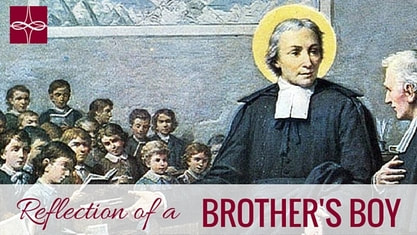

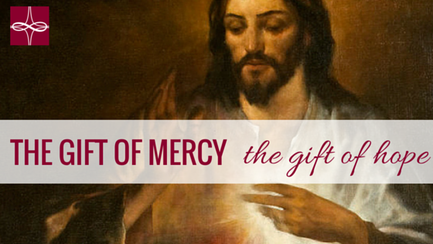
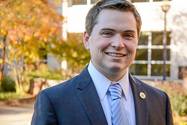




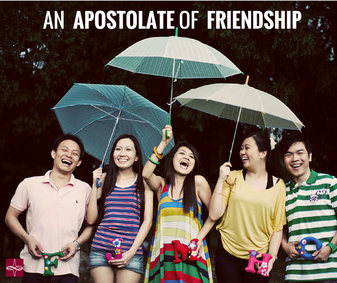

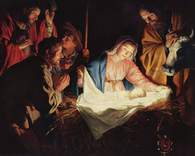

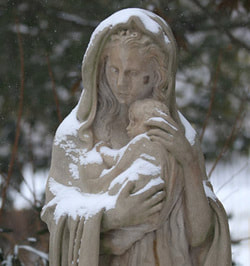
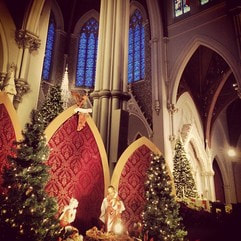
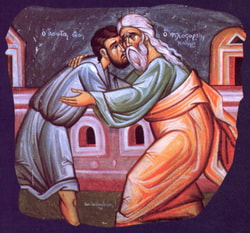
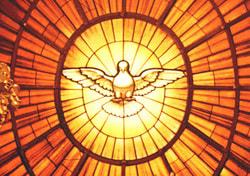
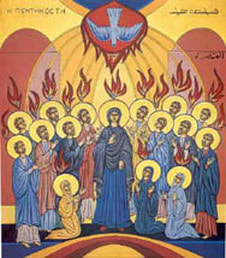
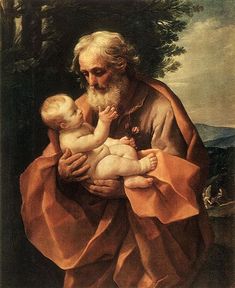

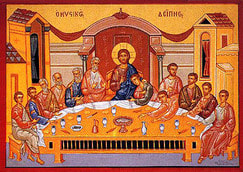
 RSS Feed
RSS Feed